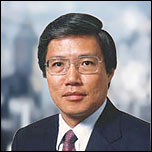Markets are dwindling not because of the Goldman Sachs issue. The markets were all waiting for a good reason to correct, they certainly found it in the Goldman Sach case, plus in itself will drag down financials, which makes up most of the gains in US markets. Its likely to be localised in the US, which will not hamper financials in other markets, but once the tide has turned, better to wait for a proper rally rather than to hope and pray that suddenly things will turn very bullish overnight. Ties in well with Sell In May & Go Away mantra. Goldman Sachs is facing fraud charges for the first time in its history as a public company, setting the stage for the Wall Street powerhouse's biggest-ever showdown with the US government.

On Friday, the US Securities and Exchange Commission charged Goldman with hiding from investors the involvement of a prominent hedge fund manager in helping it structure a subprime mortgage debt product that he was betting against.
The incipient swoon in the synthetic collateralised debt obligation - created as a way for hedge fund manager John Paulson to bet against the housing market - cost investors more than $US1 billion ($1.1 billion), according to the SEC complaint.
Goldman vowed to vigorously defend itself against the charges and denied that it had structured a portfolio that was designed to lose money, claiming that the firm itself invested in the equity portion of the deal.
The news sent Goldman's shares tumbling and cast a shadow over the dominant Wall Street firm.
The charges follow a very profitable 15-month stretch for Goldman in the aftermath of the financial crisis. But the bank's prosperity during a period of wider economic pain has come at a cost: rising public anger over gold-plated bonuses even as the firm benefited from government rescue programs.

The charges filed against Goldman could take months or even years to be resolved. But here are some possible outcomes:
A quick resolution
Goldman may look for a quick resolution to its SEC problems.
A settlement within a few months, even one which could cost Goldman hundreds of millions of dollars, would be one way for Goldman to try to move on quickly and seek to avoid long-term damage to its brand.
Even if the firm seeks such a settlement, the authorities may not want to risk it given how much of a political hot potato Goldman has become. All parties will also be fully aware that a judge rejected an initial settlement between the SEC and Bank of America over the disclosure of bonuses paid in the bank's takeover of Merrill Lynch.
And, this will not prevent the potential for lawsuits from clients who feel they have suffered losses because of Goldman's actions.
Goldman fights and wins
Such vindication would likely take many months and probably years - and wouldn't be without damage to Goldman, its management and its brand. Media scrutiny would be even more intense over this period.
In a sign of trouble to come, British Prime Minister Gordon Brown on Sunday said he wanted Britain's financial watchdog to investigate Goldman, while in Germany, a government spokesman said its regulator would also seek information.
Goldman would not only face a big legal bill, and additional compliance costs as it sought to prevent any other problems from surfacing, but it might also impose more restrictions on its bankers and traders, which could reduce making money.
Jesse Derris, a crisis communications consultant with Sunshine, Sachs & Associates, said the charges are already "incredibly damaging."
"To me, it doesn't feel like a PR problem anymore," said Derris, who represents John Thain, a former Goldman executive and former Merrill Lynch chief executive whose stewardship of the firm during the financial crisis drew widespread criticism. Thain is now CEO of CIT Group, a commercial lender that recently emerged from bankruptcy.
"There is a structural problem that has led many people, including some in government, to think they weren't just actively trying to make money, but they were trying to do it on the backs of regular people who were invested in pension funds. You can't have much worse imagery."
Fighting a long battle could also expose Goldman to a greater extent to lawsuits from investors who feel they were wronged. It will create a public record of its transactions that could help would-be plaintiffs.
Goldman fights and loses
The worst case scenario is that Goldman fights the authorities, and investigators discover more problem transactions and charge more executives. Lawsuits from clients pile up and get very expensive to settle or fight. And while criminal charges are seen as unlikely they cannot be completely discounted.
In these circumstances, some question whether Goldman will be permanently damaged and lose a lot of its power and status, especially if it faces a major exodus of clients worried about the reputation questions.
Most think this unlikely but it can't be discounted.
"The $US64 million question would be is there some sort of unraveling of Goldman that will be coming down the pike, and I'd rather doubt it," said Joseph Battipaglia, a market strategist with Stifel Nicolaus.
Under the worst case, the future of CEO Lloyd Blankfein and other top executives would be in doubt. Veteran banking analyst Richard Bove, of Rochdale Securities, said on Friday that the charges could lead to Blankfein's resignation.
"People wonder how Goldman was able to make as much money in trading as they did at a time when nobody else was doing anything and maybe this is a reason why," said Malcolm Polley, chief investment officer, Stewart Capital Advisors. "How widespread this is, time will tell. If the SEC has brought charges on one instance my guess is it will open a can of worms."
Wider implications
The impact goes well beyond just Goldman - here are some of the implications for Wall Street as a whole and the broader financial markets:
- Advocates of tougher Wall Street regulations are already citing the Goldman fraud allegations to bolster their case for tighter oversight of derivatives and other financial products.
"That's the question," said Jason Tyler, senior vice president and part of the investment committee at Ariel Capital Management. "Will this fuel a fire and get a more aggressive form of financial reform in Washington? The timing of this works out well to get some legislation done ... it gives (lawmakers) another arrow in the quiver.

- Goldman could be just the first Wall Street player to be targeted in what could become a much larger investigation.
SEC investigators may see the Goldman case as a shot at redemption after they missed the boat on Ponzi-schemer Bernard Madoff and alleged swindler Allen Stamford. Indeed it hardly seemed like a coincidence that the Goldman charges were filed hours before - and largely overshadowed - a government watchdog's report excoriating the agency for failing to go after Stamford years earlier.
A resurgent SEC eager to restore its credibility could prove a major risk for Goldman and the rest of Wall Street in the coming months.
"The SEC is on the hotseat," plaintiffs Lawyer Jacob Zamansky said. "They missed Madoff ... It's a big moment for the SEC to see if they can stand up to Goldman Sachs and the best lawyers and experts on Wall Street."
Reuters

p/s photos: Jessica C (of Wacoal fame)







![[20080613-Fiona_Xie_Poster.jpg]](https://blogger.googleusercontent.com/img/b/R29vZ2xl/AVvXsEiqi68vaGKswFGF70LvjJk2PDRjIpHKkcyiHGYE52ZP43JUfDsddfzR9sQPjyZ1FEv0NaI87l_8hrXQwzxBQgfrxRF9MoH90FLVniz3S60dmfSvzmwecOEsrYfiA-xwoXDd-UKpJQ/s1600/20080613-Fiona_Xie_Poster.jpg)
![[fiona_xie_2008_April_Lime-5.jpg]](https://blogger.googleusercontent.com/img/b/R29vZ2xl/AVvXsEjpnshS6ETeCGeSBzZQq293uADi2NOKl518D15cJAXNXH8ihGaFl4o615LBXi6R-fHpOthQQcNb6g1KILzXQXi1KPzYh-W1TSZMw81jLNHRjExC234E56GoPmh_WmEZiUQoQ-uX-A/s1600/fiona_xie_2008_April_Lime-5.jpg)
![[fiona_xie_style_april-3.jpg]](https://blogger.googleusercontent.com/img/b/R29vZ2xl/AVvXsEhfPviSznSeIo70psOiZq5G4nw6TmbIYACFuCU34jjN4PtpGqOphRWt2x_Ufuwky1zGuMlqFRWTRNWw5sdibPOFyzA2ykI6cglBJHWbqxvLeTuI_WBKz55mstGEJcCrIB80EsPI/s1600/fiona_xie_style_april-3.jpg)


































'Under the government’s exchange rate regime, the exchange rate of the MYR is controlled against “a trade-weighted basket of currencies.”'
This is plain wrong - Malaysia has not followed a basket of currencies approach since before the 1997 crisis. It's also inconsistent with...
"The upward trend in the ringgit against the U.S. dollar and the revival of capital inflows into the equity market have increased central bank intervention in the FX market to support exports."
...which implies a different sort of currency regime entirely.
In any case, watch changes in reserves as a signal of intervention. If trade and capital inflows were attracting central bank intervention to absorb upward pressure on MYR, then you would expect an increase in international reserves...which isn't there. Taking into account revaluation loss from the MYR's appreciation, then change in reserves for the year to date (2010) is a big fat zero.
11:50 AM